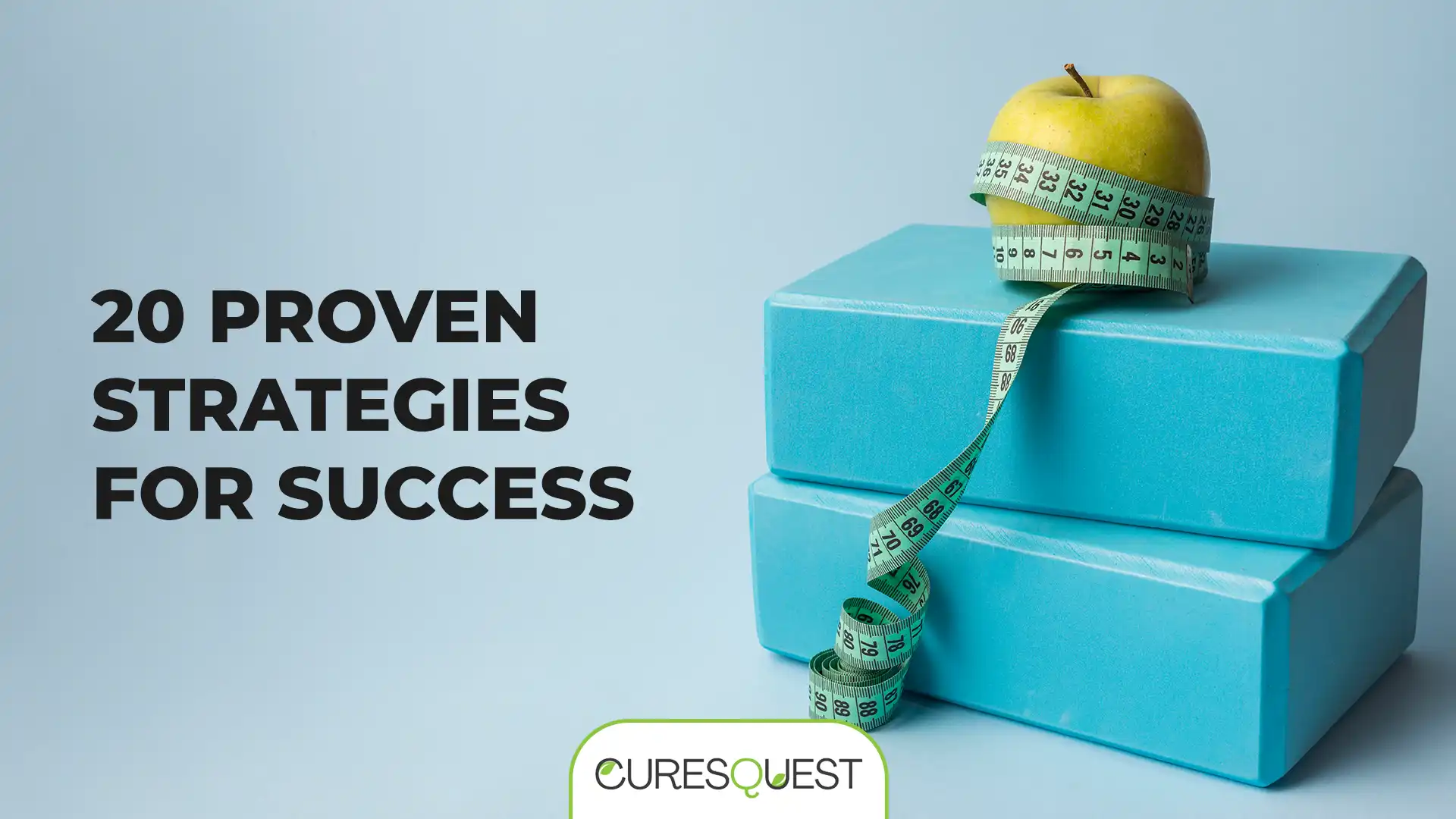Book Appointment Now

Weight Loss Tips for Beginners: 20 Proven Strategies for Success
Starting a weight loss journey can feel intimidating, especially for beginners. But with the right guidance, science-backed strategies, and practical tips, anyone can achieve lasting results. This guide covers weight loss tips for beginners, combining nutrition, exercise, mental health, and habit-building strategies to ensure sustainable and healthy weight loss.
Table of Contents
20 Proven Strategies for Success

1. Set Realistic Goals
Setting achievable goals is the first step for beginners. Start with small, measurable targets like losing 1–2 pounds per week. Breaking goals into smaller milestones increases motivation and accountability.
Example:
Instead of saying “I want to lose 30 pounds,” set weekly targets: “I will walk 30 minutes daily and replace soda with water.”
2. Understand Your Caloric Needs
Weight loss occurs when calorie intake is less than calorie expenditure. Use online calculators or consult a nutritionist to determine your daily needs. Avoid extreme restrictions as they may harm metabolism.
Calorie Example Table:
| Activity Level | Calories for Weight Maintenance | Recommended Deficit for Weight Loss |
|---|---|---|
| Sedentary | 1800–2000 | 1500–1700 |
| Moderately Active | 2000–2200 | 1700–1900 |
| Active | 2200–2500 | 1900–2200 |
3. Track Your Progress
Monitoring food intake, physical activity, and body measurements provides insight into progress and patterns. Apps like MyFitnessPal or journaling help identify areas needing improvement.
4. Prioritize Whole Foods
Focus on nutrient-dense foods like vegetables, fruits, lean protein, and whole grains. Whole foods provide satiety and essential nutrients, reducing overeating.
5. Stay Hydrated
Water boosts metabolism, reduces appetite, and aids digestion. Drink 8–10 glasses daily and consider having water before meals.
6. Incorporate Regular Exercise
Exercise is crucial for burning calories and improving overall health. Start with walking, cycling, or swimming 3–5 times a week, gradually increasing intensity.
Pro Tip:
Even short 10-minute bursts of activity multiple times a day can enhance calorie burn for beginners.
7. Mix Cardio and Strength Training
Cardio burns calories, while strength training builds muscle, which boosts metabolism. Include bodyweight exercises, resistance bands, or light weights.
8. Avoid Sugary Drinks and Junk Food
Soft drinks, pastries, and processed snacks add empty calories. Replace them with water, fruits, and nuts.
9. Practice Mindful Eating
Pay attention to hunger and fullness cues. Eat slowly, avoid distractions, and enjoy each bite to prevent overeating.
10. Get Adequate Sleep
7–9 hours of sleep regulates hunger hormones and improves decision-making regarding food. Poor sleep is linked to weight gain.
11. Manage Stress Effectively
Stress triggers emotional eating. Practice meditation, deep breathing, yoga, or journaling to manage stress effectively.
12. Build a Support System
Engage friends, family, or online communities to share goals, celebrate milestones, and gain motivation. Accountability increases adherence.
13. Focus on Habit-Building
Instead of short-term diets, focus on creating long-term habits: meal prep, daily movement, and consistent sleep schedules.
14. Educate Yourself Continuously
Learn about nutrition and fitness from credible sources like WebMD and Healthline. Knowledge reduces confusion and empowers decision-making.
15. Track Macros and Nutrition
Understanding protein, carbs, and fat intake helps maintain energy, preserve muscle, and control hunger. Beginner-friendly tracking apps are highly effective.
16. Include High-Protein Snacks
Protein increases satiety. Snacks like Greek yogurt, boiled eggs, or nuts prevent overeating at meals.
17. Limit Processed Foods
Highly processed foods are calorie-dense and nutrient-poor. Focus on fresh ingredients to improve nutrition and reduce unnecessary calories. One effective approach is to discover 15 natural ways to lower cholesterol that actually support heart health.
18. Celebrate Small Wins
Recognize progress, no matter how small. Celebrate milestones like consistent workouts, water intake, or improved energy.
19. Stay Consistent
Regularity beats perfection. Even small, repeated actions yield significant long-term results. Consistency is more important than intensity for beginners.
20. Be Patient and Flexible
Weight loss is gradual. Adjust strategies based on progress and personal preferences. Flexibility helps maintain long-term adherence.
Frequently Asked Questions
What is the best diet for beginners?
A balanced diet focusing on whole foods, lean proteins, and vegetables is ideal. Avoid extreme restrictions and fad diets.
How can I track my weight loss progress?
Track weight, measurements, and habits using apps or journals. Observing trends helps adjust your plan effectively.
Do I need a gym to lose weight?
No. Walking, yoga, home workouts, and bodyweight exercises are sufficient for beginners to achieve results.
How much weight can I lose safely per week?
1–2 pounds per week is considered safe and sustainable. Rapid loss often leads to rebound weight gain.
How do I stay motivated?
Set realistic goals, track progress, celebrate wins, and seek support from friends or online communities.




